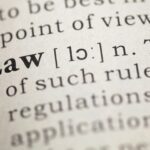Charles “Chip” Wodrich, Hornor, Townsend & Kent, Barred by FINRA
According to public records on December 12th, 2024, The Financial Industry Regulatory Authority (FINRA) has barred Charles “Chip” Wodrich (CRD#: 2715728) from working as a broker.
Wodrich was reportedly named a respondent in a FINRA complaint alleging that he failed to produce documents and information requested by FINRA in connection with its investigation into whether he had made unsuitable recommendations and provided misleading information to a senior customer, whether he engaged in discretion without written authorization in that customer’s account, and whether he had communicated with customers using a personal email address that was not monitored or retained by his member firm.
FINRA’s complaint alleges that Wodrich’s failure to provide the requested information and documents impeded FINRA’s investigation. The complaint also alleges that Wodrich failed to appear for on-the-record testimony requested by FINRA. Wodrich’s testimony was material to FINRA’s investigation. Wodrich’s failure to provide on-the-record testimony impeded FINRA’s investigation, according to the findings.
Unsuitable Investments
Unsuitable investments refer to financial products that are not suitable for your investment goals, risk tolerance, or financial situation. These investments are typically recommended or sold by brokers or financial advisors who may not have properly assessed your individual needs or provided appropriate advice.
FINRA Rule 2111 requires that a firm or its representative have a reasonable basis to believe a recommended transaction or investment strategy involving a security is suitable for the customer. Brokers must have a firm understanding of both the product and the customer, according to Rule 2111. The lack of such an understanding itself violates the suitability rule.
Firms that fail to perform adequate due diligence, or that make unsuitable recommendations, can be held responsible for losses in a Financial Industry Regulatory Authority (FINRA) arbitration claim.
FINRA BrokerCheck – Charles “Chip” Wodrich
The FINRA BrokerCheck tool is a free online tool that allows investors to research and verify the background and credentials of financial brokers, brokerage firms, and investment advisors registered with FINRA. According to his broker report, Wodrich was reportedly registered with the following firms during his career, among others.
12/05/2013 – 08/11/2022 HORNOR, TOWNSEND & KENT, LLC (CRD#:4031) GOODYEAR, AZ
07/08/2011 – 12/04/2013 BROKERS INTERNATIONAL FINANCIAL SERVICES, LLC. (CRD#:139627) GOODYEAR, AZ
Regulation Best Interest
FINRA registered Broker-dealers are required to conduct thorough due diligence before recommending investments, under the “Regulation Best Interest” standard. If a financial advisor fails to meet this obligation before making a recommendation, they may be held liable for any resulting investment losses.
If you have suffered investment losses due to an unsuitable investment recommendation, the securities attorneys at The White Law Group may be able to help you. You may be able to recover your losses by filing a FINRA arbitration claim against your brokerage firm that sold you the investment.
Free Consultation with National Securities Attorneys
If you have suffered investment losses with Charles “Chip” Wodrich, the securities attorneys at the White Law Group may be able to help you. For a free consultation with a securities attorney, please call (888) 637-5510.
About The White Law Group
The White Law Group, LLC is a national law firm in securities fraud, securities arbitration, investor protection, and securities regulation and compliance. With offices in Chicago, Illinois and Seattle, Washington, the firm is dedicated to assisting investors across all 50 states with claims against their brokerage firms. Since its founding in 2010, The White Law Group has handled over 800 FINRA arbitration cases.
With more than 35 years of experience in securities law, The White Law Group has the knowledge and expertise to help investors recover losses resulting from securities fraud.
Last modified: December 27, 2024


